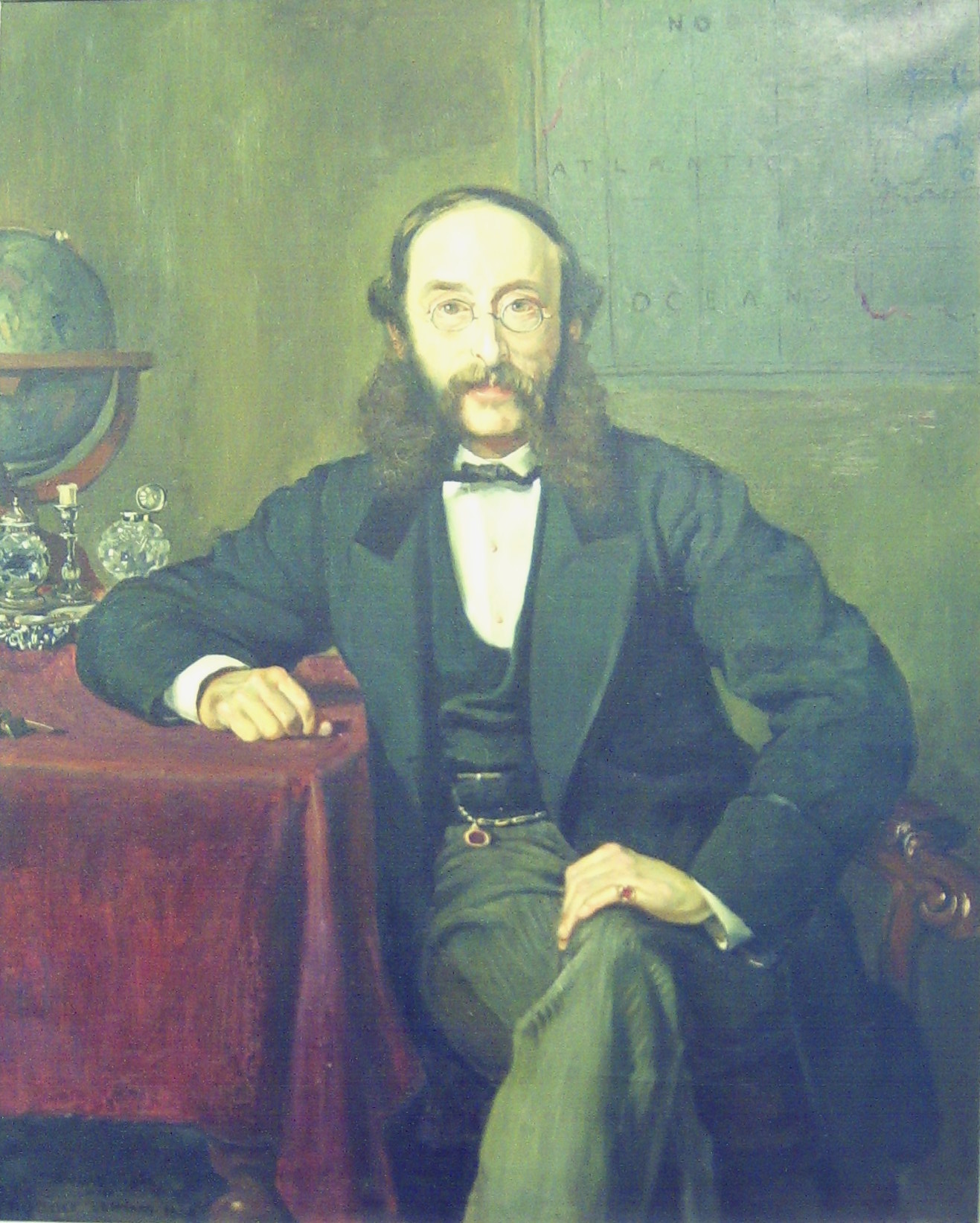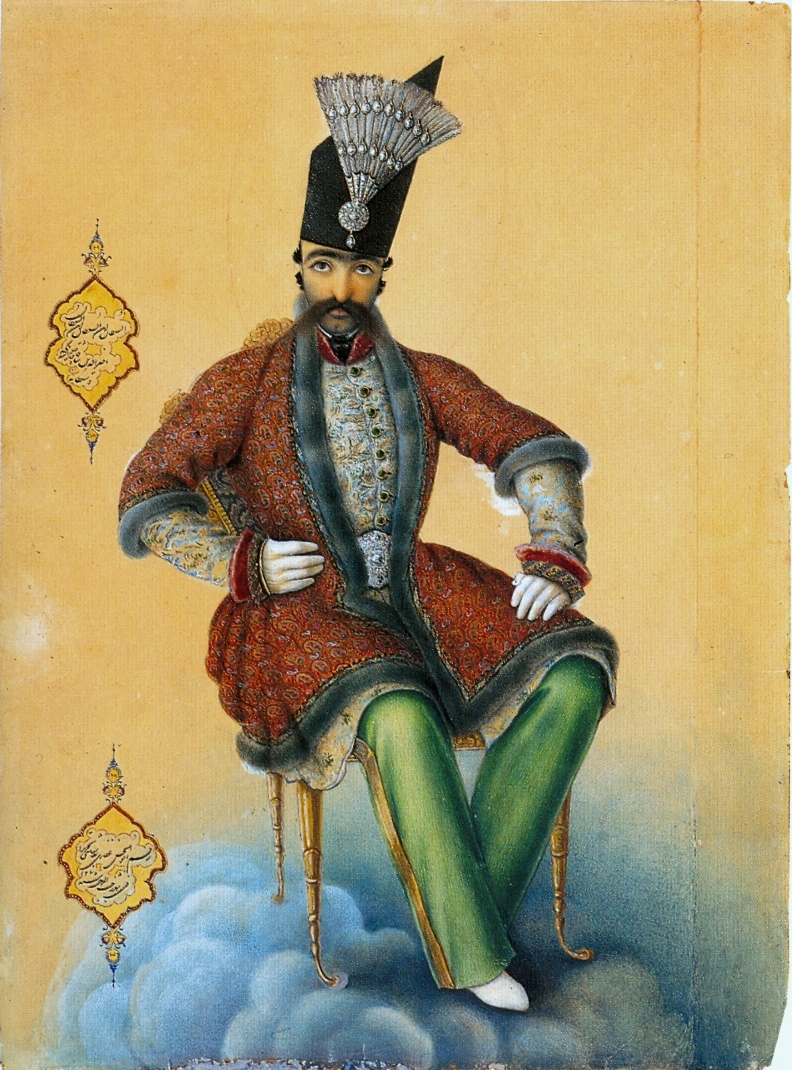|
Reuter Concession
The Reuter concession (Persian: امتیازنامه رویتر) was a contract signed in 1872 between Paul Reuter, a German-born British banker, businessman, and founder of Reuters, and Naser al-Din Shah, Qajar king of Persia. George Curzon wrote that: e concession was dated July 25, 1872. When published to the world, it was found to contain the most complete and extraordinary surrender of the entire industrial resources of a kingdom into foreign hands that has probably ever been dreamed of, much less accomplished, in history. Exclusive of the clauses referring to railroads and tramways, which conferred an absolute monopoly of both those undertakings upon Baron de Reuter for the space of seventy years, the concession also handed over to him the exclusive working for the same period of all Persian mines, except those of goldsilver, and precious stones; the monopoly of the government forests, all uncultivated land being embraced under that designation; the exclusive construction ... [...More Info...] [...Related Items...] OR: [Wikipedia] [Google] [Baidu] [Amazon] |
Contract
A contract is an agreement that specifies certain legally enforceable rights and obligations pertaining to two or more parties. A contract typically involves consent to transfer of goods, services, money, or promise to transfer any of those at a future date. The activities and intentions of the parties entering into a contract may be referred to as contracting. In the event of a breach of contract, the injured party may seek judicial remedies such as damages or equitable remedies such as specific performance or rescission. A binding agreement between actors in international law is known as a treaty. Contract law, the field of the law of obligations concerned with contracts, is based on the principle that agreements must be honoured. Like other areas of private law, contract law varies between jurisdictions. In general, contract law is exercised and governed either under common law jurisdictions, civil law jurisdictions, or mixed-law jurisdictions that combine elem ... [...More Info...] [...Related Items...] OR: [Wikipedia] [Google] [Baidu] [Amazon] |
Paul Reuter
Paul Julius Reuter (born Israel Beer Josaphat; 21 July 1816 – 25 February 1899), later ennobled as Freiherr von Reuter (Baron von Reuter), was a German-born British entrepreneur who was a pioneer of telegraphy and news reporting.Paul Julius Reuter Encyclopedia of World Biography, 2004, The Gale Group Inc. He was a reporter, media owner, and the founder of the news agency, which became part of the conglomerate in 2008. Life and career Reuter was born in a |
Reuters
Reuters ( ) is a news agency owned by Thomson Reuters. It employs around 2,500 journalists and 600 photojournalists in about 200 locations worldwide writing in 16 languages. Reuters is one of the largest news agencies in the world. The agency was established in London in 1851 by Paul Reuter. The Thomson Corporation of Canada acquired the agency in a 2008 corporate merger, resulting in the formation of the Thomson Reuters Corporation. In December 2024, Reuters was ranked as the 27th most visited news site in the world, with over 105 million monthly readers. History 19th century Paul Julius Reuter worked at a book-publishing firm in Berlin and was involved in distributing radical pamphlets at the beginning of the Revolutions of 1848. These publications brought much attention to Reuter, who in 1850 developed a prototype news service in Aachen using homing pigeons and electric telegraphy from 1851 on, in order to transmit messages between Brussels and Aachen, in what today is Aa ... [...More Info...] [...Related Items...] OR: [Wikipedia] [Google] [Baidu] [Amazon] |
Naser Al-Din Shah
Naser al-Din Shah Qajar (; ; 17 July 1831 – 1 May 1896) was the fourth Shah of Qajar Iran from 5 September 1848 to 1 May 1896 when he was assassinated. During his rule there was internal pressure from the people of Iran, as well as external pressure from the British empire and the Russian empire. He granted many concessions, most importantly the Reuter concession and the Tobacco concession. He allowed the establishment of newspapers in the country and made use of modern forms of technology such as telegraph, photography and also planned concessions for railways and irrigation works. Despite his modernizing reforms on education, his tax reforms were abused by people in power, and the government was viewed as corrupt and unable to protect commoners from abuse by the upper classes which led to increasing anti-governmental sentiments. He was assassinated when visiting a shrine in Rayy near Tehran. He was the first modern Iranian monarch who formally visited Europe and wrote of ... [...More Info...] [...Related Items...] OR: [Wikipedia] [Google] [Baidu] [Amazon] |
George Curzon, 1st Marquess Curzon Of Kedleston
George Nathaniel Curzon, 1st Marquess Curzon of Kedleston (11 January 1859 – 20 March 1925), known as Lord Curzon (), was a British statesman, Conservative Party (UK), Conservative politician, explorer and writer who served as Viceroy of India from 1899 to 1905 and Foreign Secretary (United Kingdom), Foreign Secretary from 1919 to 1924. Curzon was born in Derbyshire into an aristocratic family and educated at Eton College and Balliol College, Oxford, before entering Parliament of the United Kingdom, Parliament in 1886. In the following years, he travelled extensively in Russia, Central Asia and the Far East, and published several books on the region in which he detailed his geopolitical outlook and underlined the perceived Russian Empire, Russian threat to British control of India. In 1891, Curzon was named Under-Secretary of State for India, and in 1899 he was appointed Viceroy of India. During his tenure, he pursued a number of reforms of the British Raj, British administrati ... [...More Info...] [...Related Items...] OR: [Wikipedia] [Google] [Baidu] [Amazon] |
Qanat
A qanāt () or kārīz () is a water supply system that was developed in ancient Iran for the purpose of transporting usable water to the surface from an aquifer or a well through an underground aqueduct. Originating approximately 3,000 years ago, its function is essentially the same across the Middle East and North Africa, but it is known by a variety of regional names beyond today's Iran, including: kārēz in Afghanistan and Pakistan; foggāra in Algeria; khettāra in Morocco; falaj in Oman and the United Arab Emirates; and ʿuyūn in Saudi Arabia. In addition to those in Iran, the largest extant and functional qanats are located in Afghanistan, Algeria, China (i.e., the Turpan water system), Oman, and Pakistan. Proving crucial to water supply in areas with hot and dry climates, a qanat enables water to be transported over long distances by largely eliminating the risk of much of it evaporating on the journey. The system also has the advantage of being fairly resistant to n ... [...More Info...] [...Related Items...] OR: [Wikipedia] [Google] [Baidu] [Amazon] |
Sovereignty
Sovereignty can generally be defined as supreme authority. Sovereignty entails hierarchy within a state as well as external autonomy for states. In any state, sovereignty is assigned to the person, body or institution that has the ultimate authority over other people and to change existing laws. In political theory, sovereignty is a substantive term designating supreme legitimate authority over some polity. In international law, sovereignty is the exercise of power by a state. ''De jure'' sovereignty refers to the legal right to do so; '' de facto'' sovereignty refers to the factual ability to do so. This can become an issue of special concern upon the failure of the usual expectation that ''de jure'' and ''de facto'' sovereignty exist at the place and time of concern, and reside within the same organization. Etymology The term arises from the unattested Vulgar Latin *''superanus'' (itself a derived form of Latin ''super'' – "over") meaning "chief", "ruler". Its spellin ... [...More Info...] [...Related Items...] OR: [Wikipedia] [Google] [Baidu] [Amazon] |
Imperial Bank Of Persia
The Imperial Bank of Persia () was a British bank that operated as the central bank and bank of issue in Iran (formerly known as Name of Iran, Persia until 1935) between 1889 and 1929. It was established in 1885 with a concession from the Persian government to Paul Reuter, Baron Julius De Reuter (born Israel Beer Josaphat) a German–Jewish banker and businessman who later became a Christian and a British subject. The bank was the first modern bank in Iran and introduced European banking ideas to a country in which they were previously unknown. The legal centre of the bank was in London and whilst it was subject to British law, its activities were based in Tehran. It also had operations in other Middle Eastern countries. It was later named British Bank of the Middle East (BBME) and is now called HSBC Bank Middle East, HSBC Bank Middle East Limited. After the Iranian Revolution of 1979, all the Iranian activities of this bank were transferred to Bank Tejarat. Background and histor ... [...More Info...] [...Related Items...] OR: [Wikipedia] [Google] [Baidu] [Amazon] |
1870s In Iran
Year 187 ( CLXXXVII) was a common year starting on Sunday of the Julian calendar. At the time, it was known as the Year of the Consulship of Quintius and Aelianus (or, less frequently, year 940 ''Ab urbe condita''). The denomination 187 for this year has been used since the early medieval period, when the Anno Domini calendar era became the prevalent method in Europe for naming years. Events By place Roman Empire * Septimius Severus marries Julia Domna (age 17), a Syrian princess, at Lugdunum (modern-day Lyon). She is the youngest daughter of high-priest Julius Bassianus – a descendant of the Royal House of Emesa. Her elder sister is Julia Maesa. * Clodius Albinus defeats the Chatti, a highly organized German tribe that controlled the area that includes the Black Forest. By topic Religion * Olympianus succeeds Pertinax as bishop of Byzantium (until 198). Births * Cao Pi, Chinese emperor of the Cao Wei state (d. 226) * Gu Shao, Chinese official and politici ... [...More Info...] [...Related Items...] OR: [Wikipedia] [Google] [Baidu] [Amazon] |







